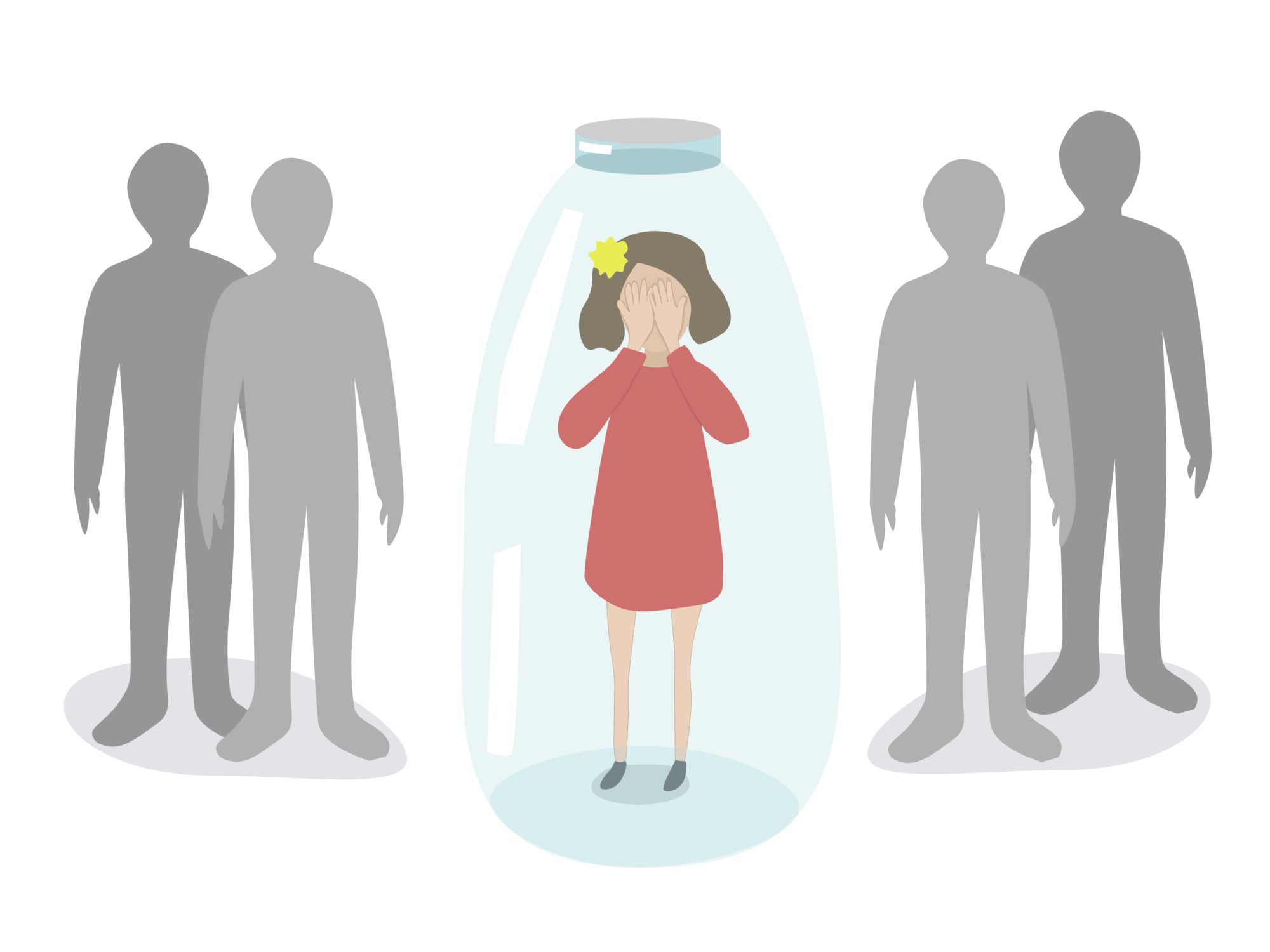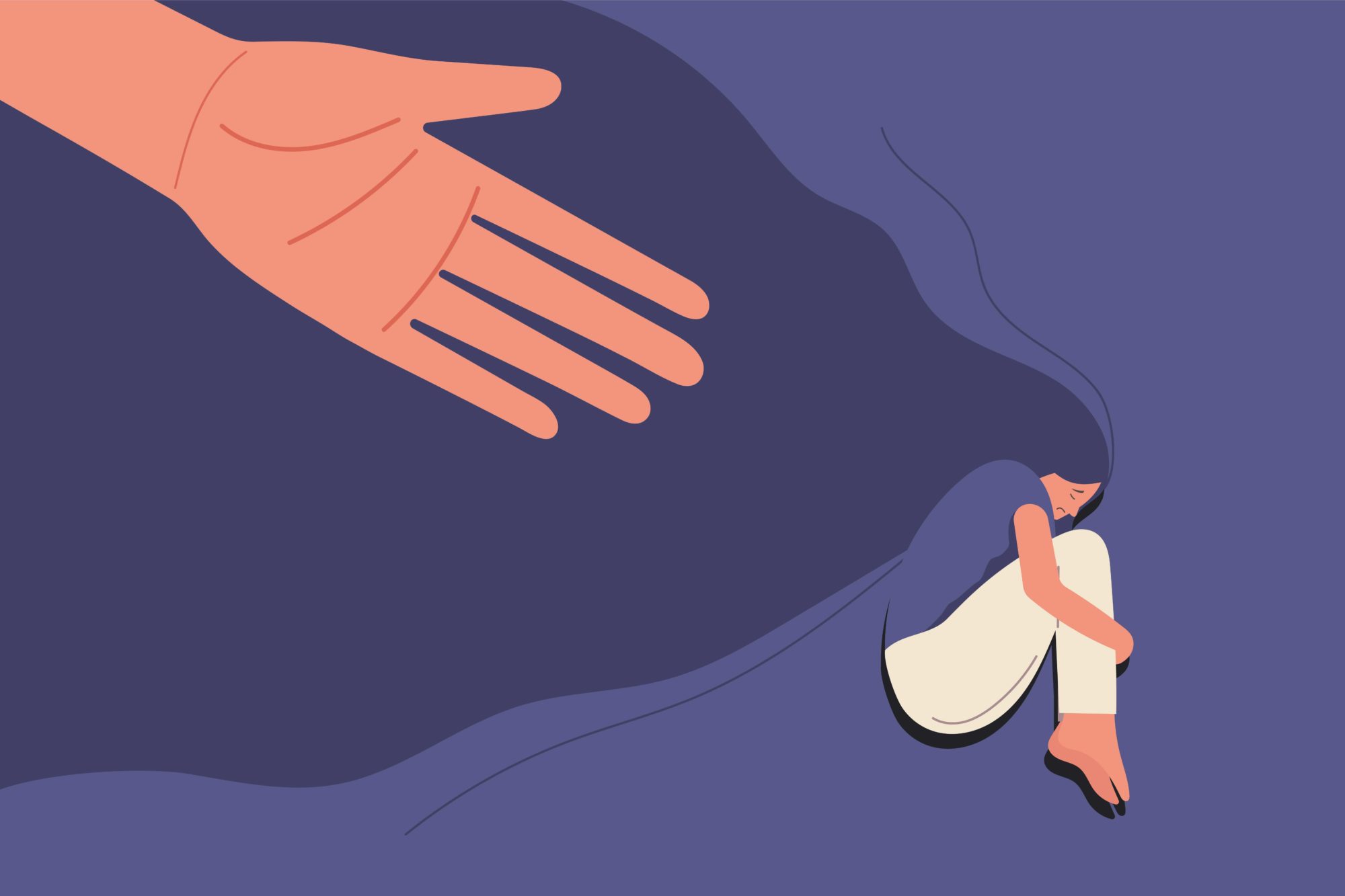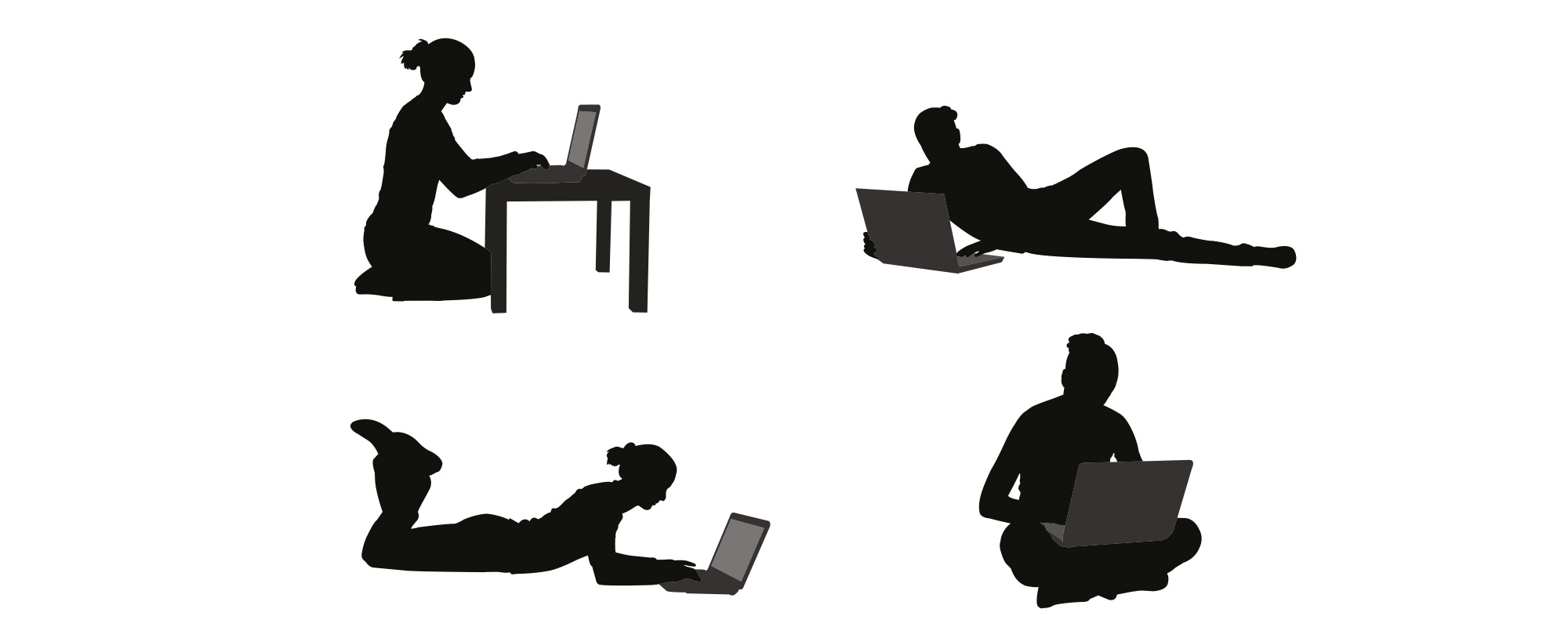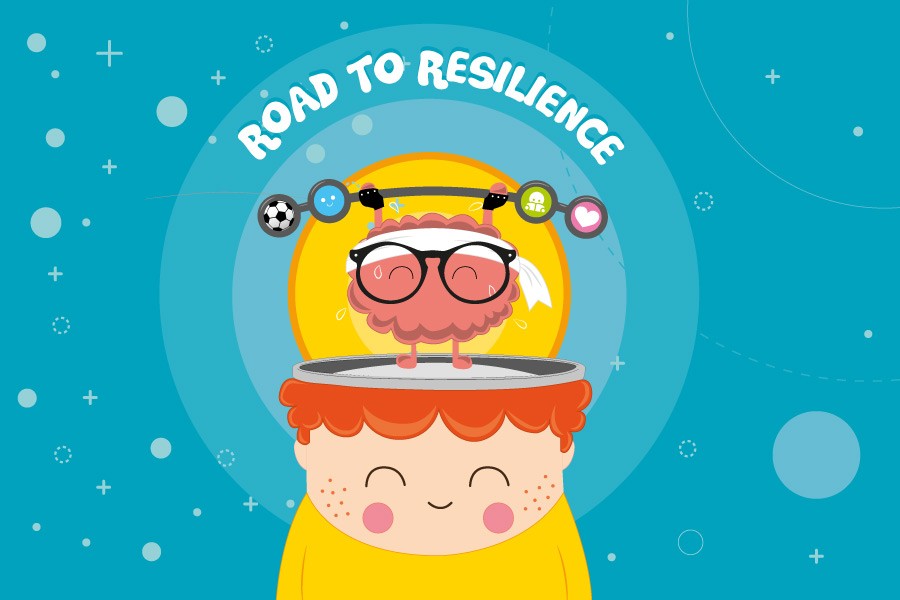eports suggesting loneliness is on the rise, are we facing a new epidemic? And are there specific social, demographic, or economic factors that are contributing to this rise? In this article, Chris Styles speaks to Jamie Bonnici from the University of Malta, Faculty for Social Wellbeing, about a 2019 study on the prevalence of loneliness among the Maltese population and if these feelings of isolation are more prevalent in certain demographics, a study which has been replicated recently as well.
Continue readingThe Other Side of Stigma
It is estimated that every 1 out of 4 people will experience a mental health problem in their lifetime. Mental health refers to what we feel, as well as how we think and act. It is how we go about our daily lives, go to work, attend lectures, engage in meaningful relationships, and interact socially.
The majority of us will experience a mental health problem at some point in our lives, but not all of us will go on to develop a mental illness. Let’s imagine a line where good mental health sits on one end, and poor mental health sits on the other. During a good week, we might find ourselves on one end, only to find ourselves moving towards the other end on a bad week. Say you have a deadline coming up at work or at school. It makes you feel worried and anxious because you cannot handle it on your own, but you do not turn to your colleagues for help. If that anxiety grows within you, you might find yourself experiencing poorer mental health. The very same thing actually happens with our physical health.
When we notice changes in our physical health which may indicate we’re not well, we usually phone up our GP or go to the clinic to check it out. We might even take a few days off work until we recover. The question is, do we visit the clinic as readily if we notice these changes in our mental health? The number of people seeking help is on the rise and has increased steadily over the past years; however, we still continue to see many people refusing to seek help, with only 36% of adults with common mental health problems receiving treatment. Despite the continuous efforts to mitigate this in Malta, stigma still remains a big part of the reason why many fail to seek professional help.
Stigma is a collection of thoughts or attitudes towards something or someone. It is seen as a mark of disgrace, as though needing help (in this case, for mental health) is somehow shameful. So what effect does stigma have on us?

Stigma might hold a person back from even admitting their mental health problem to themselves. The fear of being misunderstood by those around them makes it less likely that they will reach out for help. These misunderstandings may lead to feelings of hopelessness and shame as people struggle to cope with their situation. Unfortunately, this may result in a wall being built between individuals and seeking help. Stigma affects people every step of the way, from diagnosis and all throughout treatment since there is a perceived shame around receiving treatment for mental illness.
Stigma leaves a profound impact on how people feel about themselves and how those around them perceive them. The bright side is that a lot is being done about this, and a lot can be done about it on an individual level: that means you reading this!
It starts with being aware of your own attitudes and behaviours. The way we speak can have a profound impact on the people around us. When we talk disparagingly or mockingly about an issue such as mental health, we are closing the door on that issue. Being open about our mental state of mind can help overcome this taboo. Education also plays a big role in all of this — get to know the facts and educate yourself about mental illness. While you’re at it, educate those around you too; pass on real facts and positive attitudes. This may serve to challenge the myths and stereotypes we have unfortunately picked up along the way from society and the media.

Finally — and possibly the most important point – support. Treat those around you with dignity and respect. Support those around you who may need it: offer practical help or ask what they need from you. Sometimes listening without judgement is enough. Normalise difficulties and issues, because even though they might not always be physically seen, everyone is fighting their own battles behind closed doors.
If you or someone you know is struggling, reach out to us on our freephone 1770 or through our online chat OLLI.chat. We’re here 24/7.
This article was written in collaboration with the Richmond Foundation.
University on the Edge
The Latin phrase alma mater, translated to ‘nourishing mother’, is frequently used to refer to a university. From that, we get the term alumnus, ‘one who is nourished’ when referring to graduates. But the nourishers and the nourished, the staff and the students, are in trouble.
University life can be incredibly stressful for staff and students alike. The staff have to cope with more people meeting the necessary standards to enter university and the different capabilities and needs they bring with them. Students are under constant pressure to get high marks, meet all their assignment deadlines, and attend extra-curricular activities — not to mention the daily struggle to find parking!
These are the typical and surface-level struggles of University of Malta (UM) staff and students. But the reality is that many of them also struggle with things they won’t mention out loud.
With the Covid-19 pandemic, the stresses of commute times and having to spend long hours at the university have decreased, but mental health struggles have seen a sharp rise.
In 2019 it was already reported that in a sample of 13,000 UM students, 36% met the criteria for a mental health disorder. The Covid-19 situation combined with the switch to online learning has no doubt exacerbated these challenges and created new ones. While many have adjusted to these changes, others are trying to come to grips with the new normal and consequently struggle in their mental health.
Anxiety has taken hold of many during the pandemic, making those already prone to worry even more anxious. Many fear contracting the virus and/or passing it on to loved ones, and so they are constantly vigilant and taking precautions. This hyper-alertness can cause exhaustion of the mind and body, as research indicates a strong correlation between mental wellbeing and bodily health. For example, negative mental wellbeing increases the risk of developing cardiovascular disease in particular.

For many, the switch to online learning and telework is adding to the already stressful occupation of being a UM staff member or student. Online learning is a poor substitute for a real classroom. The SALT surveys reported that the majority of UM students (around 76%) were generally dissatisfied with the shift to online learning, and 66% experienced symptoms of anxiety related to their studies. This is due to many factors, including the perception of a lack of understanding and communication from staff as well as being burdened with a bigger workload. In addition, many students and staff struggle to work in unsuitable home environments with distractors like noise, construction work, pets, family members, and children shouting. This forces many staff and students to travel around to cafés or other people’s homes to work efficiently.
These combined stressors are making some students lose enthusiasm for their courses. And in return, lecturers also feel demotivated because of the lack of participation from students.
While UM staff go through their own stresses brought about by the pandemic, most of them are in secure employment. On the other hand, most university students are still young and unskilled, and so get odd jobs in the entertainment, commercial, and tourism industries. Many of these jobs have been slashed due to the pandemic. This, in turn, is causing much anxiety among the student population because they wonder if there will be jobs left for them in the coming summers, or even after they graduate.
The uncertainty of the future coupled with these stressful and sudden changes can contribute to depression. The loneliness and isolation caused by the near-complete absence of campus life and social events has no doubt exacerbated these depressive effects. In a local study, an alarming 35% of participants, most of them young, felt extremely lonely in 2020 compared to just 2% in 2019. Many new students have never even met their classmates in person.
Fortunately, the University of Malta remains committed to the mental health and success of its staff and students. While many lectures are not being held physically, the university’s doors are still open to provide a quiet and structured work environment for those who need it. Once lockdown ends the Calm Room will be available from Monday to Friday between 9 am and 5pm to provide a safe, calm space for students to gather their thoughts and relieve anxiety. And finally, the university offers Counselling Services, a dedicated team of psychologists, psychiatrists, and social workers who attend to mental health issues that require particular care.

Interested in the topic? Betapsi has focused their March episode of ‘.Virgola’ on the topic of ‘University Mental Health’ where we have interviewed Prof. Andrew Azzopardi, the Dean of the Faculty of Social Wellbeing, regarding this subject. Visit our Facebook page ‘Betapsi Malta’ for further information.
Further Reading:
Definition of ALMA MATER. Merriam-webster.com. Retrieved 23 March 2021, from https://www.merriam-webster.com/dictionary/alma%20mater.
Raway, L. (2019). Attitudes towards Mental Health and Willingness to Seek Psychological Help: A Quantitative study among University Students. [Published Bachelor of Honours dissertation], University of Malta.
Laura D. Kubzansky, Jeff C. Huffman, Julia K. Boehm, Rosalba Hernandez et al. (2018). Positive Psychological Well-Being and Cardiovascular Disease: JACC Health Promotion Series. Journal of the American College of Cardiology. 72 (12), 1382-1396. doi: https://doi.org/10.1016/j.jacc.2018.07.042.
Cuschieri, Attard, Bartolo, Attard et al. (2020). Learning, teaching and assessment during the pandemic at the University of Malta. Findings of the SALT Surveys
Bonnici J., Clark M., Azzopardi A. (2020). Fear of COVID-19 and its Impact on Maltese University Students’ Wellbeing and Substance Use. Malta Journal of Health Sciences. doi: 10.14614/FEARCOVID19/7/20
Counselling Services. (n.d.). https://www.um.edu.mt/services/health-wellness/counselling
An oasis of calm for students with autism: KSU launches Calm Room. (2020, November 25). UM Newspoint. https://www.um.edu.mt/newspoint/news/2020/11/calm-room-launched
Dare to THINK and Other Mental Health Tips
The uncertainty of a global pandemic has taken its toll on our mental health. Examining Dr Paulann Grech’s latest book, Dealing with Coronus, takes us beyond mental well-being during COVID-19 and into a discussion about mindfulness and what it means for our mental health.
Continue reading“Dealing with Coronus, Self-help notes for a pandemic” by Paulann Grech
The Pandemic had shown us the importance of taking care of our mental well-being. Dr Paulann Grech shares her insights in her latest book!
Continue readingSocial networks to support mental health
The COVID-19 situation has taken a toll on people’s wellbeing. The constant flow of information can amplify the stress. Dr Josianne Scerri and Dr Paulann Grech, together with their colleagues and students, carved out a space on social networks where people could practise self-care – and get their facts right. They share their experience here.
Continue readingRoad to resilience
Hardships do not befall us all in equal measure. Cassi Camilleri talks to Prof. Carmel Cefai about his work at the Centre for Resilience and Socio-Emotional Health and the dedicated curriculum that seeks to impart the skill of resilience to those who need it most.
Continue reading






